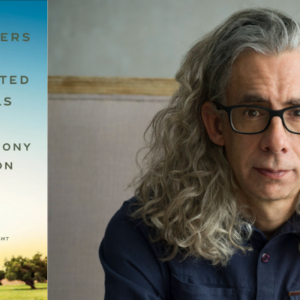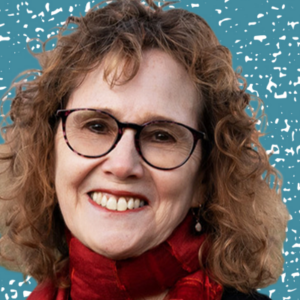
Turns Out We Have Perfectly Good Evolutionary Reasons to Avoid Exercise
Daniel E. Lieberman Talks to Andrew Keen on Keen On
The coronavirus pandemic is dramatically disrupting not only our daily lives but society itself. This show features conversations with some of the world’s leading thinkers and writers about the deeper economic, political, and technological consequences of the pandemic. It’s our new daily podcast trying to make longterm sense out of the chaos of today’s global crisis.
On today’s episode, Andrew talks to Daniel E. Lieberman about his new book, Exercised: Why Something We Never Evolved to Do Is Healthy and Rewarding.
From the episode:
Andrew Keen: One of the lovely things about your book is that you explode five core myths. And the first is that we as a species evolved to exercise. You suggest otherwise, that we didn’t evolve to exercise, which explains the paradoxes of our contemporary culture of exercise. Firstly, why do we think that we evolved to exercise? What accounts for that myth?
Daniel Lieberman: Well, I think it’s because of the way we treat exercise. We’ve medicalized it, we’ve commercialized it, we’ve commodified it. And look, it’s true, exercise is good for you. But it’s a very modern behavior. Until recently, nobody had the choice but to be very physically active—or moderately physically active, not crazy physically active. There was no retirement. There were no weekends. There were no holidays. Every day you had to go out and get food, and it was hard to get enough food. So under conditions like that, you need to be physically active, but doing excess physical activity actually works against you because there are only so many things you can do with energy. You can spend it on maintaining your body, you can spend it on growing, you can spend it on storing fat, you can spend it on moving about, and you can spend it on reproduction. The only thing natural selection cares about ultimately is reproduction. So excess energy spent on, say, physical activity is energy that you don’t spend on reproduction, and so we’re selected to not overdo it.
Andrew Keen: Daniel, I know you’re in Cambridge, Massachusetts; I’m in Berkeley, California. Not places which are particularly fond of our current president. I don’t want to make this a show about Donald Trump. And yet your second myth, which you expose, is that it’s unnatural to be indolent. You’re suggesting perhaps that Trump’s indolence, at least physically, is fairly natural. Is that fair?
Daniel Lieberman: Yeah. I mean, our ancestors, when they weren’t physically active, would take it easy as much as possible. When you sit there at an airport or a mall and there’s an escalator and a stairway next to each other, there’s a little voice in you that tells you to take the escalator all the time. Of course we never evolved to take escalators per se, but that’s a little voice that’s telling you save energy, save energy. And we have to overcome that little voice today because otherwise we don’t get any physical activity, because we live in a world that’s made physical activity optional. It’s a deep and basic and fundamental instinct to avoid unnecessary activity, just as it’s an instinct to go for foods that are high in sugar and high in fat because those, again, help us with the one thing that natural selection cares about, which is reproduction. Life is like an equation, which is energy in, babies out. The more energy that goes in and the more babies that go out is really what we’re sadly evolved to do. And it’s up to us to kind of override some of those basic instincts.
________________________
Subscribe now on iTunes, Spotify, Stitcher, or wherever else you find your podcasts!
Daniel E. Lieberman is Edwin M. Lerner Professor of Biological Sciences and professor of human evolutionary biology at Harvard University. He is the author of the national best seller The Story of the Human Body: Evolution, Health, and Disease. He lives in Cambridge, Massachusetts.
Keen On
Hear from the world’s most informed citizens about the rise of populism, authoritarian and illiberal democracy on Keen On, as Andrew Keen investigates the contemporary crisis of democracy.



















